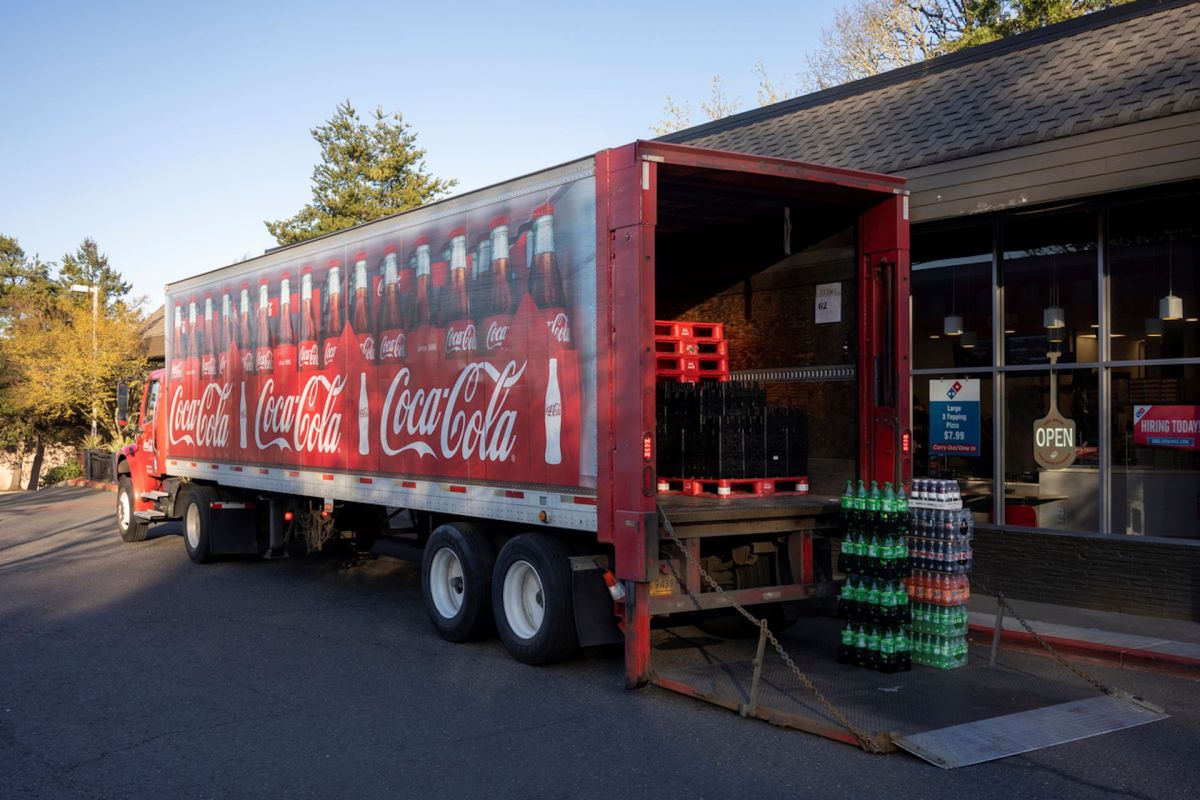Coke Canada Bottling just added six electric delivery trucks to its 650-truck fleet, taking a step toward its goal of reducing air pollution by 2030, the Financial Post reports.
The move is sorely needed. Not only are electric vehicles cheaper to drive, but Coca-Cola has maintained a dramatically negative impact on the environment. It was named the world's worst plastic polluter in 2022, over companies like Mondelēz International, Unilever, Nestle, and even direct competitor PepsiCo.
There has been pushback against Coca-Cola's polluting practices in some small areas. For example, one Coke bottler in Philadelphia eliminated plastic six-pack rings, and some European countries have changed the design of plastic soda bottles to make them safer for wildlife.
Now, Coke Canada Bottling hopes to move in the same direction with its "Toward a Better Future Together" plan, which it says will reduce its heat-trapping carbon air pollution by 46.2% by 2030, the Financial Post reports.
That plan included a small pilot program introducing Volvo VNR Electric trucks to Coke Canada Bottling's "Red Fleet" customer delivery routes in Montreal, the Financial Post explains. This partnership with Volvo made it the first Canadian food and drink manufacturer to adopt this type of electric truck.
"This milestone is not just a nod to our past and present, but also a beacon for the exciting future we eagerly anticipate," Todd Parsons, chief executive officer at Coca-Cola Canada Bottling Limited, said at the company's fifth-anniversary celebration, where the new trucks were introduced.
"Piloting the electrification of some of our 'Red Fleet,' an iconic presence on the roads of our country, underscores our ambition to be the leading beverage partner in Canada by earning our social license to operate, and we are immensely proud to partner with Volvo Trucks on this initiative," he continued.
Of course, rival PepsiCo has its eyes on the same prize. The company recently partnered with Tesla to incorporate 18 electric semis into its fleet in California.
Given the global size of both brands, this is a drop in the bucket of their fuel costs and air pollution — but it's a start, and Parsons hopes it'll go further. "We acknowledge the journey ahead, the work to be done, and are enthusiastic about the potential of this pilot with Volvo Trucks," he said.
Join our free newsletter for cool news and actionable info that makes it easy to help yourself while helping the planet.









